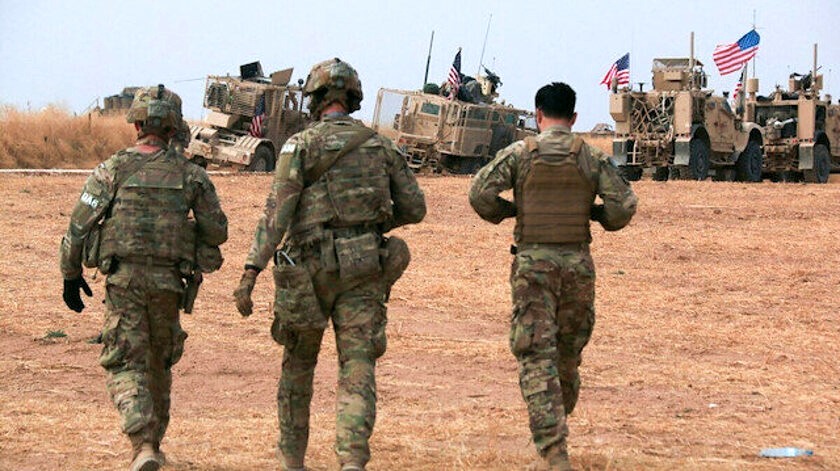Iraqi Prime Minister Mustafa al-Kazemii’s recent meeting with US President Donald Trump as part of a strategic dialogue between Baghdad and Washington can be seen in consultations between senior officials of the two countries to schedule a full withdrawal of US troops from Iraq; The presence of US troops in Iraq since 2003 has widened the gap between Iraq’s political spectrums.
Meanwhile, the presence of ISIS in Iraq, which has caused insecurity in northern and western Iraq, has raised a great deal of concern about the continued presence of US forces in Iraq, as it is believed there are contacts between ISIS and US forces behind the scenes.
As the Iraqi authorities, tribes and political factions have repeatedly called on the heads of previous Iraqi governments to end the presence of American troops in the country, but the insistence of the US President and Secretary of State to continue their presence led the previous governments interact with American politicians. Meanwhile, the United States has used the ISIS terrorist group as a tool to destabilize Iraq and legitimize its military presence in Iraq. In all, about 8,000 ISIS fighters entered Iraq during these years, exacerbating insecurity in the northern and western provinces of Iraq.
Following the cowardly assassination of General Qassem Soleimani, the former commander of the Quds Force, and Abu Mahdi al-Mohandes, the Iraqi deputy for popular mobilization force, sensitivities among the nation and political currents about the illegitimate presence of the American occupying forces increased. As a result, widespread attacks by various tribal movements and Resistance forces against the deployment of US troops in Iraq intensified, causing physical confrontation between US forces and the people.
Gradually, following the martyrdom of General Soleimani, the Iraqi parliament, under public pressure, passed a plan calling for US troops to leave Iraq within a year. For this reason, the condition for accepting Prime Minister Mustafa al-Kazemi was conditional on the withdrawal of American troops from Iraq. Therefore, al-Kazemi pledged to respect the parliament’s decision by establishing himself in the Iraqi government. Since then, strategic talks between the Iraqi government and the United States have begun, including the recent visit of the Iraqi Prime Minister to Washington.
In fact, al-Kazemi has called on Donald Trump to withdraw his troops immediately, as the likelihood of a violent clash between the American people and the US military has greatly increased. In other words, the withdrawal of 2,000 American troops will be a prelude to the complete withdrawal of these troops from Iraq.
The Americans seem to be hated by the Iraqi people for committing serious crimes against the Iraqi people, and they must leave the country as soon as possible, otherwise the Iraqi people will stand up to the American aggressors. This will cause insecurity not only in Iraq but in the whole region.
In the meantime, it is noteworthy that the Americans have predicted that because of the influence of Iranian forces in Iraq, there is a possibility that the people of this country will come into conflict with the American military. That is why in the current situation, the United States has invested in two parts of this land; The first is the Kurdish region, which may be the focus of US forces in the future, and the second is Syria, east of the Euphrates, where 2,000 US Marines are currently physically present and they will possibly stay in Syria and northern Iraq. However, due to the possibility of imposing a heavy human loss on the United States for being on Iraqi soil, they themselves have come to the conclusion that they should no longer be in conflict with the Iraqi forces and people.










0 Comments